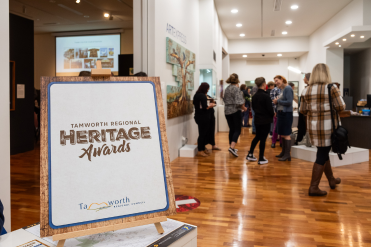Australia’s national association for workplace health and safety professionals , the Australian Institute of Health and Safety, called today for better guidance to businesses to keep workers safe and healthy, and for the Federal Government to provide access to Rapid Antigen Testing for workers.
Chief Executive Officer David Clarke said “Over the last 12 months commentary and policy related to management of the disease has descended into rancorous, binary thinking, increasingly driven by politics rather than evidence. That’s not helpful in helping business keep workers safe. Policy makers across the country have a responsibility to be better than that and should provide up to date and clear directions.”
“National guidance on COVID-19 for workplaces was provided in early 2020 by Federal and State Governments. This information gave businesses clear advice on risk assessment, physical distancing, hygiene, and cleaning. With the introduction of contact tracing, close contact definitions, COVID vaccines and rapid antigen testing, this advice is now out-dated. Business need to better informed, about how to deal with COVID-19 in 2022, with new public health rules in place” he said.
“Governments must do better than simply talk about citizen’s personal responsibility. We all still have the responsibility to reduce the incidence of work-related injury and illness and manage the transmission risk the Omicron variant represents to the workplace. Just because it is more highly transmissible, we should not simply be allowing it to spread in workplaces. We have legal and ethical responsibilities to protect workers” he said.
AIHS Chairperson Naomi Kemp called on Federal and State Governments to implement a new updated national approach. “There are too many different rules around what a high-risk work setting is, vaccination requirements, when to wear masks and what to do if a worker contracts COVID” she said. The National COVID-19 safe workplace principles were last updated on 29 April 2020. Those 10 principles do not address vaccination and rapid antigen testing.”
“The definition of a high-risk work setting should be agreed nationally, and up to date guidance needs to be developed. That guidance should be released through a range of channels in appropriate community languages” she said. “COVID-19 information for workplaces needs to include:
· How to identify high-risk work settings, and implement safe work practices in those settings including the use of P2/N95 masks
· How to consult with workers and implement a vaccination policy
· The role of Rapid Antigen Testing and how to use those tests to make workplaces safer
· How to respond to a worker who is COVID positive
· The mandatory notification requirements for a worker who is COVID positive in the workplace.
Ms Kemp also called for the federal government to supply Australian workers with free Rapid Antigen Tests. “The exposure of workers to COVID-19 is a foreseeable risk that must be managed. The supply of free RATs would enable workers to contribute to the management of workplace infection risk, especially in high-risk settings” she said.
“The federal government has signed contracts worth tens of millions for the supply of rapid antigen tests this week, but it is not yet clear where the tests will be deployed or when they will arrive for use. They have made a conscious decision to remove a wide range of population-level risk controls against COVID-19 and promoted increased reliance on Rapid Antigen Testing as a frontline risk management tool. They have a clear responsibility to follow that up by making those tests available to businesses and workers, especially in high-risk settings.”








